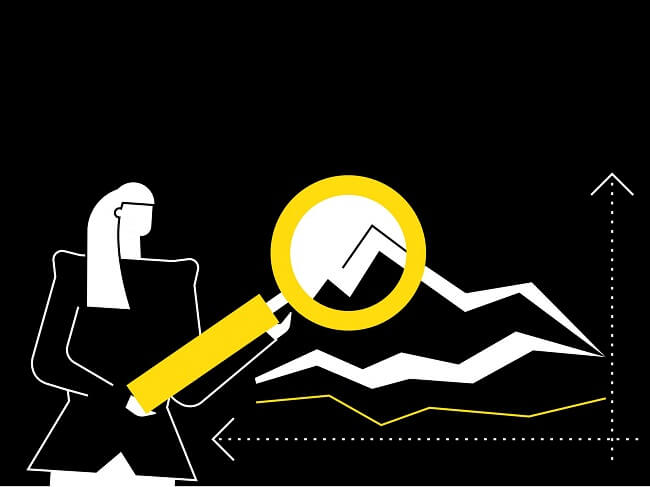We have come a long way in terms of progress around technologies like artificial intelligence, data science, and analytics. With newer innovations coming up in this space, there is a huge surge in the demand for data science job roles. While there are a lot of employable candidates in India who are trainable to fit the changing technological demand, there is a lot of confusion about what are the right skillsets required to actually fit the job. There is often an apprehension that only knowing technical things like models and algorithms makes one a data scientist — but how true is that?

Technical Vs. Business Skills
Before we dig into this, it is important to understand what are the typical roles that a data scientist needs to perform. Basically, a data scientist is a person who is at the core of solving problems and understanding business. He/she is also immensely curious and is passionate about data. We very recently wrote about how it is also important for a data scientist to be storytellers so that he/she can find out meaningful insights from the data, look at the newer trends and propose the course of action for the next problem in hand.
Data science projects are wholesome responsibilities involving a significant contribution from the likes of business analysts, data engineers, visualization experts, consultants, project managers and more. This indicates that data science job role is much more than just knowing the technical know-how. It is not just restricted to people who have a technical background but also needs people with a core business understanding.
Sohini Mehta, Global Service Delivery Head of Analytics at Wipro at a recent event said that there are so many automated machine learning platforms that most of the jobs have become easy and quite simple to perform. It no longer needs just the technical expertise but there is a lot of business knowledge too that comes into play.
Moreover, the journey to being a data scientist is a sum total of having worked as a data analyst honing the programming skills, dealing with large volumes of data, working with it real-time, statistical models and more. It then transforms into getting into complicated tasks such as analyzing structured and unstructured data, identify trends, patterns and make business decisions. Being a data science is a sum total of data maturity along with business acumen that has been gained over the years.
“Every data scientist must place enormous importance on learning business knowledge related to the problem they are solving. In fact, every newly hired data scientist in the organization should avoid building any models for first several weeks – use that time to develop a deep business knowledge as well as master the “meta-data” – data about data. Putting priority on business knowledge in your initial days at an organization will help your technical skills find a smooth runway to land or take off in the future,” said Ashish Singru, Senior Director & Head, Global Business Analytics Center, eBay in a conversation with AIM.
Why Is It Important For Data Scientists To Have A Business Acumen?
While Python coding, Hadoop, SQL database, Spark, data visualization are the important technical skillsets that data scientist must have, the need for them to have a business acumen cannot be overlooked. There needs to be a strong understanding of the industry that you are working in and deeply know what the business problem is and how to solve it.
Communication is another key requirement to make it successfully to long-term data scientists. Apart from running algorithms, it is important for data scientists to prepare progress reports, presentations, interactive dashboards, communicate the findings — all in a way that is understandable by the stakeholders.
Experts agree to the fact the good scientist must have a business savvy and inquisitive mind to understand the problem and identify which data would be more relevant. They should understand the ways to analyze business risks, make improvements in processes, and take the best foot forward for the business to run.
“Data Science is less of science and more of art. Results or products designed using advanced analytical techniques will be effective and implementable only when the end objective has been clearly defined. The model will be as efficient and effective to achieve the said objective as is the modeler clear in his/her understanding of business & processes and constraints & challenges. Technical expertise is essential to be a data scientist; however, it only makes the aspiring data scientist a modeler. ‘Business understanding’ enables that modeler to become a complete Data Scientist,” says Saurabh Awasthi who is a Data Scientist at Mondelez International.
He further added that for being a data scientist it is essential to test the proposed result for on-ground implementations. “A fancy and glamorous solution might be producing amazing results in Excel or Tableau but can be disastrous in the real world. To make sure that analytics or data science can produce results which the CEOs vision of, it is important for a data scientist to be as close to business as possible,” he said.
Who Wins?
Technical skills and business skills cannot be separated from each other when it comes to data science. It is the ability of data scientists to explain complex algorithms to common people is what makes them the most talked about ‘job of the decade’. Finding a great data scientist is, therefore, a challenge as they have to be the best of both worlds. Having said that, a data scientist should be able to handle data processing, create useful models, have an intuitive understanding of business problems, understand the nuances of data, how the model works and communicate it to the rest of the world.







